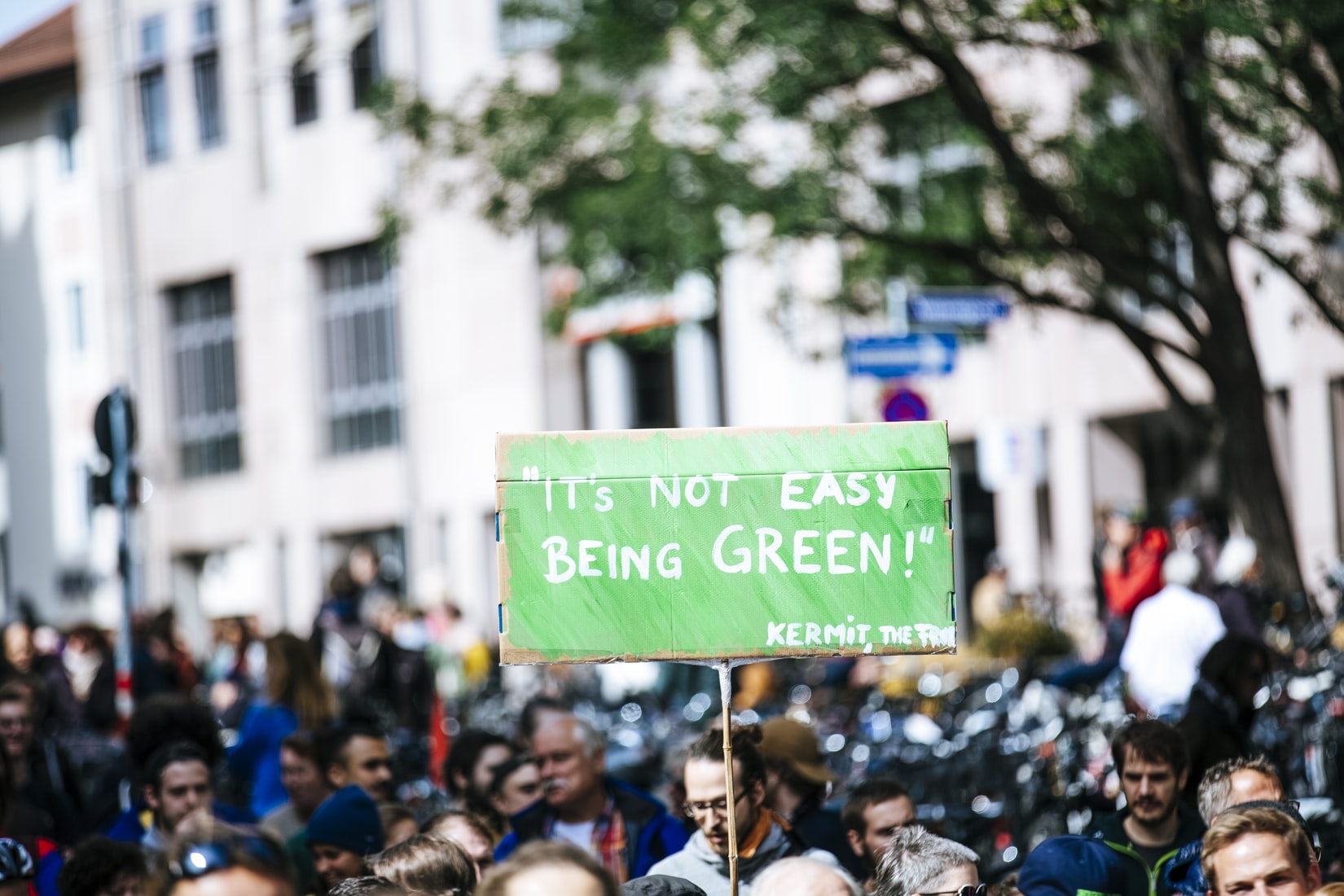By Tali Padan
◦ 3 min read ◦
In my PhD studies, I work with a different type of sustainability. Not the sustainability of carbon footprints or systemic transformations but a sustainability of reflection. How we do keep ourselves in continuous reflexive dialogue (with ourselves and others) so that we don’t prematurely reach conceptual closure, stagnating in our own comfort?
Maybe comfort is sustainability’s biggest threat.
I say this considering the many years I’ve lived in the US, after a few formative years in Israel. Comfort is the reason my mom uses paper towels in lieu of regular towels in the kitchen, and the reason my dad cannot stand critics of Israel. Comfort is identity. It is plastic. It is the reason I throw away the whole moldy cream cheese instead of washing and separating. It is why it is easier not to participate in big group meetings. This blog post itself is a distraction from the discomfort that Chapter 5 of my PhD dissertation brings.
When this comfort is shaken up, there are many ways of trying to get there again – avoiding, rejecting, resisting – and in the case of global shakeups like the Covid pandemic, the talk about ‘getting back to normal’. But what if we were able to maintain a state of uncertainty, of not knowing what the solution is or how to get there. And rather than spending energy trying, we settle into the unsettlement, letting it stir up the hurricane of trapped emotions and meeting visitors we thought we buried years ago? This is what the poet John Keats called ‘negative capability’, the ability to be in uncertainties, mysteries and doubts ‘without any irritable reaching after fact & reason’.
What if that ‘irritable reaching’ was in reality counterproductive towards our individual and therefore collective growth?
Here comes the ‘don’t get me wrong’ section. I am not suggesting we linger in the dissonance until the glaciers drown us. Nor that we use this approach as an excuse not to try, or ironically – get so comfortable with the discomfort that we disengage from any responsibility. But that we let each shake-up sufficiently run its course so that our demons can be faced, both individually and collectively.
In the elective course that I teach for third year Bachelor’s students, this is what we practice. First, and maybe most importantly, we sit in a circle. The circle grounds us in our fundamental equality and triggers us to explore our many inequalities. The class engages in a series of activities dealing with democracy, using an Israeli democracy education method called ‘Betzavta’ (Hebrew for ‘togetherness’). Betzavta, developed in the Adam Institute in Israel, integrates and emphasizes dilemmas and conflicts in order to experientially learn how to live with others in a democratic society. Each activity in the method includes reflecting on the result of the activity but also on the process. By shifting the reflection towards process, students are provoked to examine their own dynamics. Subconscious assumptions and habits can then be revealed and questioned.
It is by no means an easy process. As one student succinctly put it in the final evaluation:
“I thought that the whole thing was very good, good questions, good topics, good dialogue. But man, did it suck. It was horrible actually. But very cool.”
The ‘horrible’ part that this student is referring to could range from the discomfort of conflicting opinions to the tension of judgement, and the palpable, heavy silence that can be felt when students hold back from sharing these tensions. The good part, as I perceive it from the facilitator’s chair, is that these tensions are exposed, felt and explored, and subsequently used towards a reflexive type of learning. Lingering in these tensions cultivates our negative capability and is the doorway towards this learning.
The class represents a miniature society. When going through such an experience, students start to naturally move away from an exaggerated individuality and become more considerate towards the collective. By exposing and sharing the more difficult emotions we usually avoid – anger, irritation, overwhelm, anxiety, boredom – students get the opportunity to practice living together more genuinely, modeling the society most of us wish to see in the world. Lingering in these emotions requires being negatively capable because the habit is to seek comfort, stability, a pleasant state of mind. In this way, the ‘negative’ in negative capability does not refer to what is undesirable but rather an absence, the absence of habit, identity, or ideology. It means having the ability to stay in uncertainty without resorting to previous knowledge structures or beliefs. It’s in the letting go, entering the vulnerable home of the unknown, where thought is not there to fragment and give birth to anxiety, that we may connect with each other more genuinely. This, in my view, is a sustainable practice that could benefit us individually and therefore collectively.
About the Author
Tali Padan is currently in the final year of her PhD at CBS, writing about experiential learning techniques in the business classroom. As a facilitator and researcher, Tali is interested in how purposeful experiences of dissonance can contribute to learning. She is from Israel/USA and has lived in Denmark for ten years.

